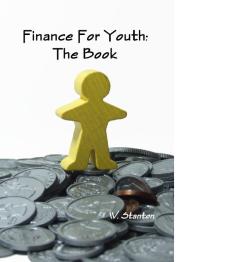I’ve been concerned for some time that President Obama wouldn’t be able to push through the resistance of several stupid people who don’t understand how bad things were, and how bad they could have been. Luckily, most of that resistance is over, and we can start to build a better society. Here are a few ideas that the government should look seriously at to help us thrive.
1. Abolish private property and apply all rents of land to public purposes.
Too many people were forced or tricked into buying houses that they shouldn’t have been expected to pay for. The only fair and equitable answer is for the government to take all private property, and make sure that there is an end to greed and homelessness. Every family would be allowed to rent a suitable residence, and the money that they pay in rent would go to helping people who couldn’t afford the rent.
2. A heavy progressive income tax.
It is unfair that some people make so much money. They don’t need that much money, and they rarely contribute to the well being of their fellow man. With a heavy tax, those who are best able to pay will help the rest of us.
3. Abolition of all rights of inheritance.
It is shameful that some people are so greedy that they think they should control things from the grave. When a person dies, their belongings should go to someone more deserving. There are people with nothing, and dead people want to keep those people down.
4. Confiscation of the property of all emigrants and rebels.
Those who rebel against the people prove that they don’t deserve to have property. They speak out against their fellow man. Those who want to leave don’t need their property where they are going.
5. Centralization of credit in the hands of the state, by means of a national bank with State capital and an exclusive monopoly.
Who caused the trouble in the first place? Private banks. Get rid of all of them, and have just one bank who controls the money supply. We will all get what we need, but not so much to make us seem greedy.
6. Centralization of the means of communication and transportation in the hands of the state.
Who needs an i-phone? Nobody does. What about all those with phones that aren’t ‘smart’? The blackberry is good enough for our leader, it should be good enough for us. Similarly, if we all drove hybrid cars, the environment would be better. Individuality leads to people believing that they are somehow better than others.
7. Extension of factories and instruments of production owned by the state, the bringing into cultivation of waste lands, and the improvement of the soil generally in accordance with a common plan.
When left to their own devices, individuals build Las Vegas, Disneyland, and soda factories. We need our leaders to determine what is best for us so that we use the land in a way that helps all of us.
8. Equal liability of all to labor. Establishment of industrial armies, especially for agriculture.
Every able body should help to work the fields to provide food to those who are not able. When some become greedy, or complain about the work they are doing for their fellow man, the workers army should step in and silence the revolt. When a person becomes too old to work, everyone else should work that much harder to make up for the loss.
9. Combination of agriculture with manufacturing industries, gradual abolition of the distinction between town and country, by a more equitable distribution of population over the country.
It is unfair that some people live in Beverly Hills, New York City, or any number of other cities where everybody isn’t allowed to live. Our leaders should instead look at making one area not more prestigious or “posh” than others, and allow people to live closer to the fields they work.
10. Free education for all children in public schools. Abolition of children’s factory labor in its present form. Combination of education with industrial protection.
This is the only one that the country has done right. Because of this, enough adults who went through the generous public schools now understand that the only way is to follow these ten “planks”. We need to continue to teach children that the way of the new world is:
From each, according to their ability, to each according to their need.
I hope our great leader has the force of will to make these changes, and that the great legislature does what is needed. We are truly fortunate to have such leaders as the Honorable Nancy Pelosi, Harry Reid, Chris Dodd, Chuck Schummer, Barney Frank, and our financial leader Tim Geithner.


























